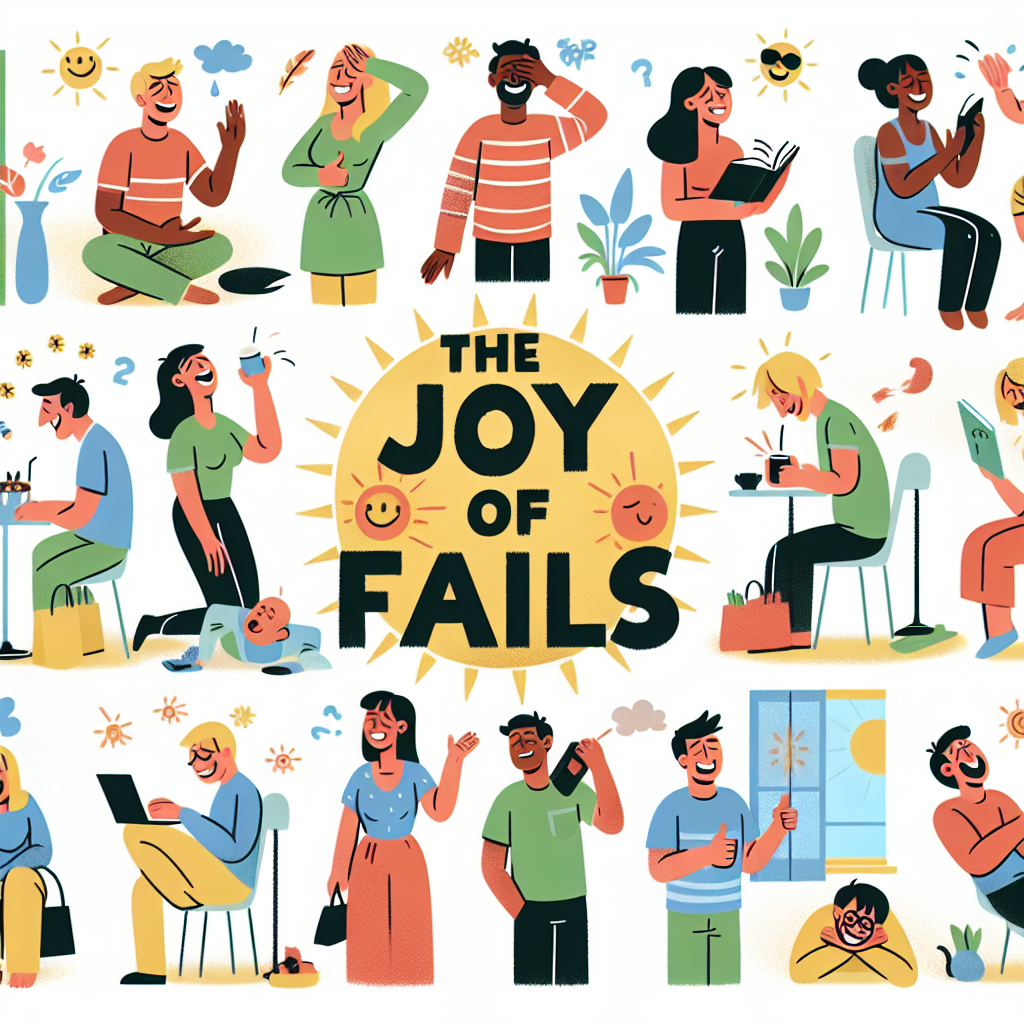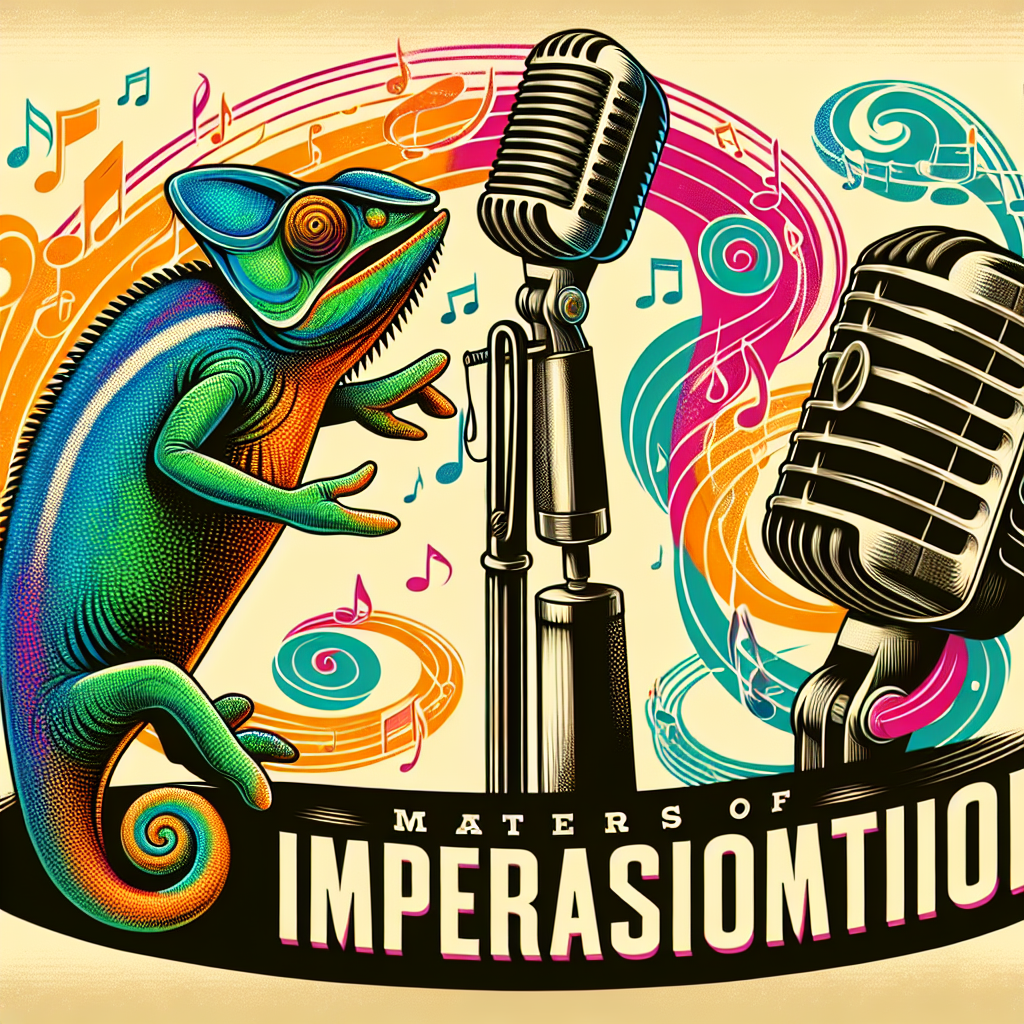The Joy of Fails: Why Watching Blunders Can Make Your Day

Table of Contents
- Understanding the Joy in Failure
- The Psychology of Laughter
- The Relief of Shared Experience
- The Cathartic Release of Frustration
- The Role of Social Media and Viral Culture
- The Impact of Shareability
- Memes and The Humor of Blunders
- Cultural Perspectives on Failure
- The Western View: A Stigma Around Failure
- The Eastern View: Learning from Mistakes
- Watching Fails as a Form of Entertainment
- The Rise of Fail Compilations
- The Role of Compilations in Mental Health
- Learning from Failure: A Growth Mindset
- Embracing a Growth Mindset
- Applying the Lessons of Fails to Business
- The Community Aspect of Shared Fails
- Building Bonds Through Fails
- Online Platforms and the Culture of Sharing
- Conclusion: Embracing the Joy of Blunders
In a world increasingly focused on perfection and success, there exists a paradox: the joy found in failure. The phenomenon of watching embarrassing blunders, whether in sports, on television, or in our day-to-day lives, can elicit a sense of joy, relief, or even catharsis. This article explores the reasons behind this unusual human inclination and delves into the psychological, social, and cultural dimensions of enjoying fails.
Understanding the Joy in Failure
The Psychology of Laughter
Laughter is a universal language, and one of its underlying components is incongruity. When outcomes deviate from expectations, such as when someone trips over their own feet or forgets their lines on stage, the surprise often leads to laughter. According to a study published in the Emotion journal, humor derived from unexpected or absurd situations activates specific areas of the brain, leading to feelings of joy (source: Emotional Response).
The Relief of Shared Experience
Experiencing a blunder, no matter how minor, often leads to a sense of vulnerability. Observing others make mistakes can be reassuring. It reminds us that we are not alone in our imperfections. This shared experience fosters a sense of community and reduces feelings of isolation. Communicating failures can create bonds, as evidenced in various support groups and online communities.
The Cathartic Release of Frustration
Watching someone else fail can also provide a cathartic release. When we view others in less-than-ideal situations, it helps us release tension and stress accumulated in our own lives. This is particularly evident in reality television, where viewers often find themselves cringing but laughing at the same time.
The Role of Social Media and Viral Culture
The Impact of Shareability
In the age of social media, videos of fails are more accessible than ever. Platforms like YouTube and TikTok thrive on viral content that showcases blunders. According to a report by Statista, comedy and fail videos account for a significant portion of views on social media. This shift towards valuing authentic and relatable content adds to the appeal of watching fails.
Memes and The Humor of Blunders
Memes and short video clips that showcase fails often spread like wildfire across social platforms. These bite-sized pieces of content are easily digestible and prompt instantaneous reactions, making them ideal for sharing. The humorous take on fails can create a sense of belonging and collective enjoyment.
Cultural Perspectives on Failure
The Western View: A Stigma Around Failure
In many Western cultures, there is a stigma attached to failure. Success is often celebrated, while failure is viewed as a setback. However, this narrative is changing, as stories of failure are increasingly shared in entrepreneurial circles. Books like "Make Your Bed" by Admiral William H. McRaven have discussed the importance of embracing failure as a stepping stone to success.
The Eastern View: Learning from Mistakes
Conversely, many Eastern cultures emphasize learning from failure. The idea that each mistake can be a lesson creates a different social narrative. In Japan, for example, there exists a practice known as "kaizen," where continuous improvement and learning from errors are encouraged. This approach fosters resilience and adaptability.
Watching Fails as a Form of Entertainment
The Rise of Fail Compilations
Fail compilations on platforms such as YouTube combine hilarity with the unpredictability of life. When realized creatively, they can evoke a range of emotions. The combination of visual humor, surprise elements, and the shared experience of laughter makes them a powerful form of entertainment.
The Role of Compilations in Mental Health
Engaging with humorous content, especially fails, can have mental health benefits. Studies suggest that laughter can reduce stress hormones, improve mood, and even enhance the immune system (source: Health Benefits of Laughter). Thus, dedicating time to watch comedic fails can be a simple, effective way to manage stress and anxiety.
Learning from Failure: A Growth Mindset
Embracing a Growth Mindset
A growth mindset, as coined by psychologist Carol Dweck, involves viewing challenges as opportunities for growth. By watching fails and recognizing our own mistakes, we can adopt a more resilient attitude towards our experiences. Recognizing that blunders are part of the learning process encourages us to take risks and embrace uncertainty in various aspects of life.
Applying the Lessons of Fails to Business
Entrepreneurs and small business owners can particularly benefit from this mindset. Learning to view setbacks as opportunities can foster innovation and adaptability. Case studies have shown that some of the most successful businesses have come from failed ideas. For instance, Starbucks nearly failed in its initial phases but learned from its mistakes, leading to its evolution into a global coffee brand.
The Community Aspect of Shared Fails
Building Bonds Through Fails
The sense of community created through shared failures can foster lasting bonds between individuals. This is evident in various social media groups where users share their own fail stories. The ability to laugh together at life’s mishaps promotes camaraderie, creating a supportive environment for growth and resilience.
Online Platforms and the Culture of Sharing
Platforms like Reddit and Facebook host dedicated groups where users share their own fails. These storytelling spaces allow individuals to vent, laugh, and bond over shared experiences. The power of community cannot be underestimated; it serves as a reminder that we are all navigating life’s challenges together.
Conclusion: Embracing the Joy of Blunders
The joy found in failures is a rich tapestry of psychology, culture, and social interaction. From the psychological relief of laughter to the community building that arises from shared experiences, blunders have a unique power to uplift our spirits. By embracing these moments of imperfection, we not only find joy but also cultivate a mindset that values resilience and learning.
In a world that often prioritizes success, learning to appreciate and laugh at failures can lead to a more balanced, fulfilling life. So the next time you find yourself watching a fail compilation, remember: there’s joy in the blunder, and perhaps a lesson for you, too.
Internal Links:
-
For more insights into overcoming challenges in business, check out our article on Embracing Risk in Entrepreneurship.
- Learn how to foster resilience in your team with our guide on Building a Resilient Workforce.
External Links:
This article has been designed to provide insight into the joys of watching fails while remaining professional and SEO-optimized, fitting within Google’s AdSense content policies.
Latest Posts
You Might Also Like

Lorem ipsum dolor sit amet, consectetur adipiscing elit. Ut elit tellus, luctus nec ullamcorper mattis, pulvinar dapibus leo.
TOP NEWS
Copyright © 2025 FunnyShowStreaming.site | All rights reserved.



















Comments are off for this post.